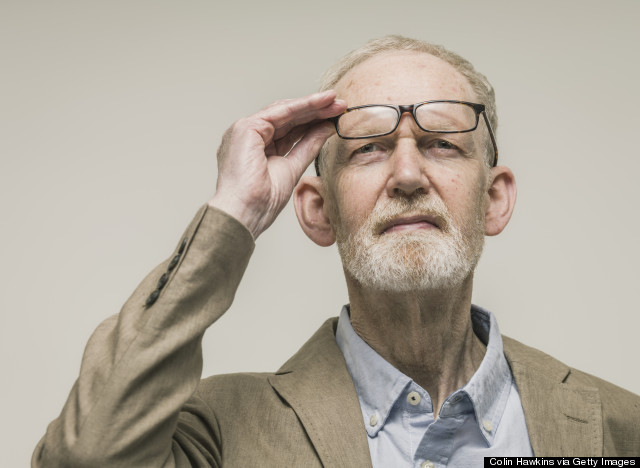
Wisdom is high on the list of personal qualities we prize. Yet even though most of us recognize that being wise is entirely different from other markers of success -- such as being rich or famous or even a genius -- wisdom is a difficult quality to define. Do we truly understand what it takes to be wise?
Ursula M. Staudinger has spent decades thinking about wisdom. As a student in Germany, she became interested in looking at people’s life experiences in an empirical way. Her studies led her to the Max Planck Institute in Berlin, where in the 1980s she joined several other prominent psychologists on the Berlin Wisdom Project, helping to pioneer the field of wisdom studies. Today, she is director of the Robert N. Butler Columbia Aging Center at Columbia University.
Wisdom, as she recently told The New York Times, consists of “self-insight; the ability to demonstrate personal growth; self-awareness in terms of your historical era and your family history; understanding that priorities and values, including your own, are not absolute; and an awareness of life’s ambiguities.”
Sound like a lot? If there’s one thing Staudinger has learned while studying wisdom, it’s that not a lot of people have it. But her work has yielded many insights into how we can set ourselves on the path to wisdom, if we really want to.
Here are 10 of Staudinger’s thoughts on what wisdom is, what it isn’t and why it's so hard to attain.
Some cultures are more conducive to wisdom than others.
In some countries and cultures, wisdom is recognized and revered as part of society’s fabric. In others, it’s harder to find. Some communities elevate wise people, while others are more likely to relegate them to society’s margins.
Staudinger pointed to some Asian cultures where people look to wisdom in everyday life, in part because of their religious beliefs and practices. However, “in the Western world, which is so much focused on the material side of life, it’s harder to see. It’s more buried,” she told The Huffington Post.
You have to look beyond yourself to be wise.

If we want to achieve the transcendence that comes with wisdom, we must look beyond ourselves. This doesn’t necessarily mean believing in God, Staudinger said. But a yearning for understanding beyond our immediate circumstances -- whether these yearnings are religious, spiritual, scientific or rooted in mere curiosity -- is essential. “What’s necessary is a realization that there is reality beyond the here and now,” Staudinger said.
Wisdom requires thinking outside the box.
Thinking outside the box may be a cliché, but it’s essential to being wise. Meeting a problem on its own terms will only result in a predictable outcome -- and wisdom is about going further.
“If you look at classical cases of wise judgments, what is true to all of them is they transcend the given problem,” Staudinger said. “They go beyond the confines of the problem as it is presented.” She cited the story of Solomon, whose famously wise judgment looked past the specific issue presented to him and expressed a deeper truth about motherhood.
Challenge it or lose it.
A play on “use it or lose it,” this is one of Staudinger’s wisdom mottoes. Only by constantly challenging ourselves and upsetting the established order of our lives can we take steps toward wisdom. “It’s going a little bit beyond what you’ve done before, venturing out a little bit into new territory,” she said. “It has to hurt a little bit -- not in a masochistic way -- but it has to be effortful.”
Not many people can be wise.

Sorry, the wise are an exclusive group. That’s not just because wisdom is so difficult to attain, but because a given society can tolerate only a small percentage of wise people, Staudinger said. A society in which every citizen walked around radiating wisdom couldn’t exist; it would be a contradiction of itself, because wisdom entails challenging a society’s conventions.
Wisdom, Staudinger said, is “quite revolutionary, actually. And not everyone wants to hear about it and not everyone wants to achieve it either, even if they may say so.”
Life sets up obstacles to keep us from attaining wisdom.
Unless we can remove ourselves from the conventions and expectations -- many of them self-centered and narrow-minded -- of our everyday lives, wisdom is likely to elude us. “It is very hard for a person embedded in the midst of power networks to pass truly wise judgments, because too many things are at stake for this person,” Staudinger said.
That doesn’t mean we have to quit our jobs, give away all our possessions and sever all ties with family and friends. But there does have to be an awareness of the limitations of everyday existence and a conscious breaking-away. She points to the Dalai Lama: “There is something unique about him that makes it more likely for him to be wise, because he is removed from the ins and outs of everyday life.”
Wisdom may come with age, but there’s no guarantee.

We tend to think all senior citizens must be wise -- it's one of the few positive old-age stereotypes. But it's not true. In fact, the notion that all we have to do is wait in order to become wise couldn’t be further from reality, Staudinger said. We actually have to work hard to become wise. We must remain open to new experiences and actively seek new challenges -- and that only becomes harder as the years go by.
“A person who accumulates wisdom as he or she grows older needs to be off track,” Staudinger said. “He or she needs to maintain a great openness to new experience and an abundance of curiosity -- for life, for people, for the richness of nature and whatnot.” If we don’t, if we close ourselves to the world and stop challenging ourselves, that can lead to dogmatic and inflexible thinking.
Wisdom isn’t taught in school.
The American education system seeks to transmit knowledge, not wisdom. Especially in kindergarten and elementary school, Staudinger said, the focus is not on learning mindfulness or discussing what constitutes good judgment. While reading, writing, math and other subjects is important, Staudinger said, we should also be teaching young people how to navigate their lives. As it is, she said, “that’s left very much to the individual.”
Some things that seem like wisdom actually aren’t.
Beyond our false association of aging with wisdom, Staudinger said, we’re guilty of “putting too many things in the pot of wisdom.” Mastery, for example, is not the same as wisdom. As we grow older and accumulate life experience, we get better and more competent at life. This is admirable, she said, but it’s not the same as wisdom.
Wisdom is not the same as happiness.

One of the hardest-to-swallow truths that Staudinger swears by is this: If you’re happy, you’re probably not wise. That’s not to say there’s no room for happiness in a life of wisdom -- there is. But to see the bright side of everything -- to see the world through rose-colored glasses, to think the glass is always half-full, etc. -- is not wise.
“Wisdom means I move beyond feeling well. I actually move out of feeling well," Staudinger said. "If I want to be wise, I very often have to move myself into feeling bad, in order to learn about myself, of what I repeatedly do wrong and why I do it and how I can solve it, rather than reframing and always seeing the good in things and not learning from failure and weakness.”
Wisdom means being able to bear the good and the bad in mind simultaneously.
“The pain and the joy have to go together,” she said. “If you wipe out the joy, you become depressed. If you wipe out the pain, you become happy-go-lucky, which is good for you, but it is not wisdom.”
